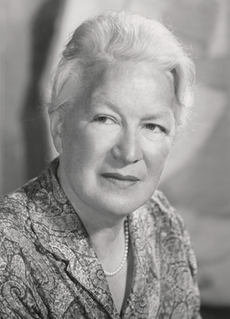A Quote by Herbie Hancock
While knowledge may provide useful point of reference, it cannot become a force to guide the future.
Related Quotes
One of the most sublime and hazardous moments in human experience comes when two people lock eyes and realize that they are sexually attracted to one another. They may not act on the knowledge.They may file it away for future reference. They may deny it. They may never see each other again. But the moment has happened, and for an instant all other considerations are insignificant.
We have heard of a Society for the Diffusion of Useful Knowledge. It is said that knowledge is power, and the like. Methinks there is equal need of a Society for the Diffusion of Useful Ignorance, what we will call Beautiful Knowledge, a knowledge useful in a higher sense: for what is most of our boasted so-called knowledge but a conceit that we know something, which robs us of the advantage of our actual ignorance? What we call knowledge is often our positive ignorance; ignorance our negative knowledge.
If one does not make human knowledge wholly dependent upon the original self-knowledge and consequent revelation of God to man, then man will have to seek knowledge within himself as the final reference point. Then he will have to seek an exhaustive understanding of reality. He will have to hold that if he cannot attain to such an exhaustive understanding of reality he has no true knowledge of anything at all. Either man must then know everything or he knows nothing. This is the dilemma that confronts every form of non-Christian epistemology
I tried not to write about the O.J. Simpson case too much because so much has already been said about it, but there are a lot of questions left worth asking. However, the case is very useful to illustrate other points. The case is a common reference point because everybody knows the ins and outs of it, more than any other case in this generation, so it becomes useful to reference other points. In itself, there aren't that many questions about it that remain unanswered.
Anyone interested in the past, present, or future of banking and financial crises should read The Bankers' New Clothes. Admati and Hellwig provide a forceful and accessible analysis of the recent financial crisis and offer proposals to prevent future financial failures. While controversial, these proposals--whether you agree or disagree with them--will force you to think through the problems and solutions.
At some point, you realize you can't provide a perfectly monolithic description of a foreign culture's future any more than you can provide a monolithic description of your own hometown's future. Your choices about what to emphasize and what to leave out make all the difference, and ultimately, your fingerprints and biases and viewpoints are going to be all over the story.
Public education is the key civil rights issue of the 21st century. Our nation's knowledge-based economy demands that we provide young people from all backgrounds and circumstances with the education and skills necessary to become knowledge workers. If we don't, we run the risk of creating an even larger gap between the middle class and the poor. This gap threatens our democracy, our society and the economic future of America.




































